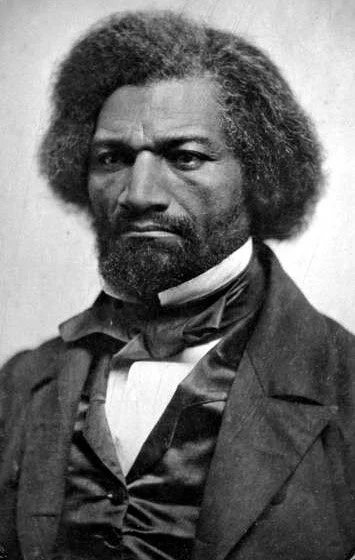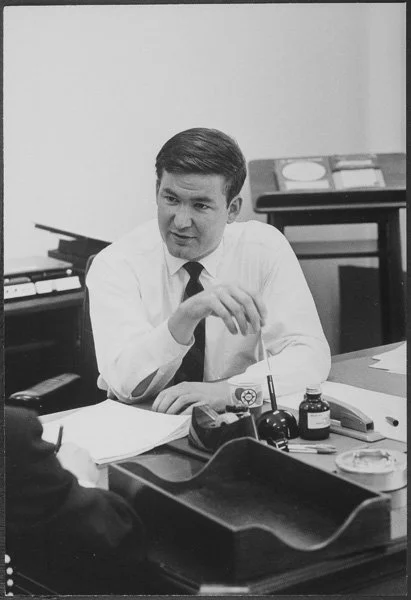The Good Gamble
Beneath the scars of America’s past, lie her greatest aspirations.
Read
We’re back! Legal scholar Jedediah Purdy joins Will and Siva to help launch a new season focused on democracy, law and the people. Can Americans transcend gross inequality, neoliberal ideology, and the “politics of nihilism” taking root among their leaders? Purdy’s new book urges readers to reimagine and rebuild their body politic — to rule themselves at last. It may be a crapshoot, but it’s one a free people can’t afford to pass up.
The kind of hope Purdy has for America and its people, Siva says, reminds him of Frederick Douglass’s devotion to the principles the country was founded upon. Even in the face of a brutal slave regime that persisted in his time, Douglass had faith that the country could and would transcend its original sin. Purdy balks at the comparison, but draws our attention to the provocative speech Douglass delivered in Rochester, N.Y., in 1852, the day after Independence Day: “What, to the Slave, Is the Fourth of July?”
Meet
Jedediah S. Purdy returned this year to the Duke University Law School. His teaching and research focuses on ecology, property and constitutional law. He is the author of numerous books, including For Common Things: Irony, Trust, and Commitment in America Today (1999, Knopf); After Nature: A Politics for the Anthropocene (2015, Harvard University Press); and, most recently, Two Cheers for Politics: Why Democracy Is Flawed, Frightening — and Our Best Hope (2022, Basic Books). Previously, he served as a law professor at Columbia University. In 2013, Purdy was arrested for civil disobedience at a Moral Monday march in Raleigh.
In Two Cheers for Politics Purdy considers the history of democratic thought and argues that defending self-government requires more robust politics, and compromise, not less.
One of the biggest impediments to the flourishing of American democracy, he says, is the U.S. Constitution’s all but useless rules for ratifying amendments. It’s a case he makes at length in the Atlantic.
After the birth of his first son, in 2020, Purdy wondered how he would explain climate change to his son, the suffering the planet has yet to endure in his lifetime, and what people everywhere can and should do about it.
A year after the Jan. 6, 2021, insurrection, Purdy explored the roots of democratic failure in the United States, in a guest essay for the New York Times.
More recently, he made a case for why America is worth fighting for, and why “progressives need patriotism, more than ever in a time of understandable anger and despair.”
Purdy’s first book, For Common Things, made him something of a celebrity when he was in his mid-20s. Addressed as a kind of love letter to his own Generation X, this work pleaded with young people to stay engaged in their communities.
Read Purdy’s review of a new book by Olivier Zunz, on the life and times of Alexis de Tocqueville — America’s 19th-century ethnographer of democracy. In overlooking the nation’s growing religious zealotry and class divisions, that famous French aristocrat may have missed as much as he understood about America’s great experiment.
Learn
Like Purdy, journalist McKay Coppins pinpoints the roots of Trumpism in the nihilistic politics of guys like New Gingrich. Check out the highlights from Coppins’s 2018 interview with NPR’s Fresh Air.
Or consider Pat Buchanan, another proto-Trumpian figure of the 1990s. Television analyst Jeff Greenfield has this retrospective on Buchanan’s style and “America First” rhetoric, in Politico Magazine.
There are a lot of stylistic differences between Ronald Reagan and Donald Trump, to be sure, but as Purdy points out in our interview, Reagan’s vision for America in many ways laid the groundwork for the Trump era. Historian Kevin Kruse discusses the intertwined legacies of these two presidents.
Curious about the Olin Foundation? The Washington University Political Review has this story about the namesake of that organization. The heir of a fortune made in munitions, John M. Olin invested heavily in programs at prestigious universities to further neoliberal, laissez-faire economic dogma among American elites.
In her 2019 book titled The Cult of the Constitution, legal scholar Mary Ann Franks issues a scathing critique of constitutional fundamentalism, and the selective beliefs of its adherents.
Fans of the show are probably tired of hearing us say this, but self-rule by the masses was never really the idea behind American democracy in the first place. As Louis Menand writes, as few as 18 percent of the population voted in the presidential election of 1900. In 2020, record numbers turned out to the polls and put President Biden in office. The following year, Republican-controlled legislatures in 19 states enacted 34 new measures to make voting more difficult.
The Brennan Center, which collects data on such laws, offers this Q and A with experts on ways to improve civic participation in elections and governance.










